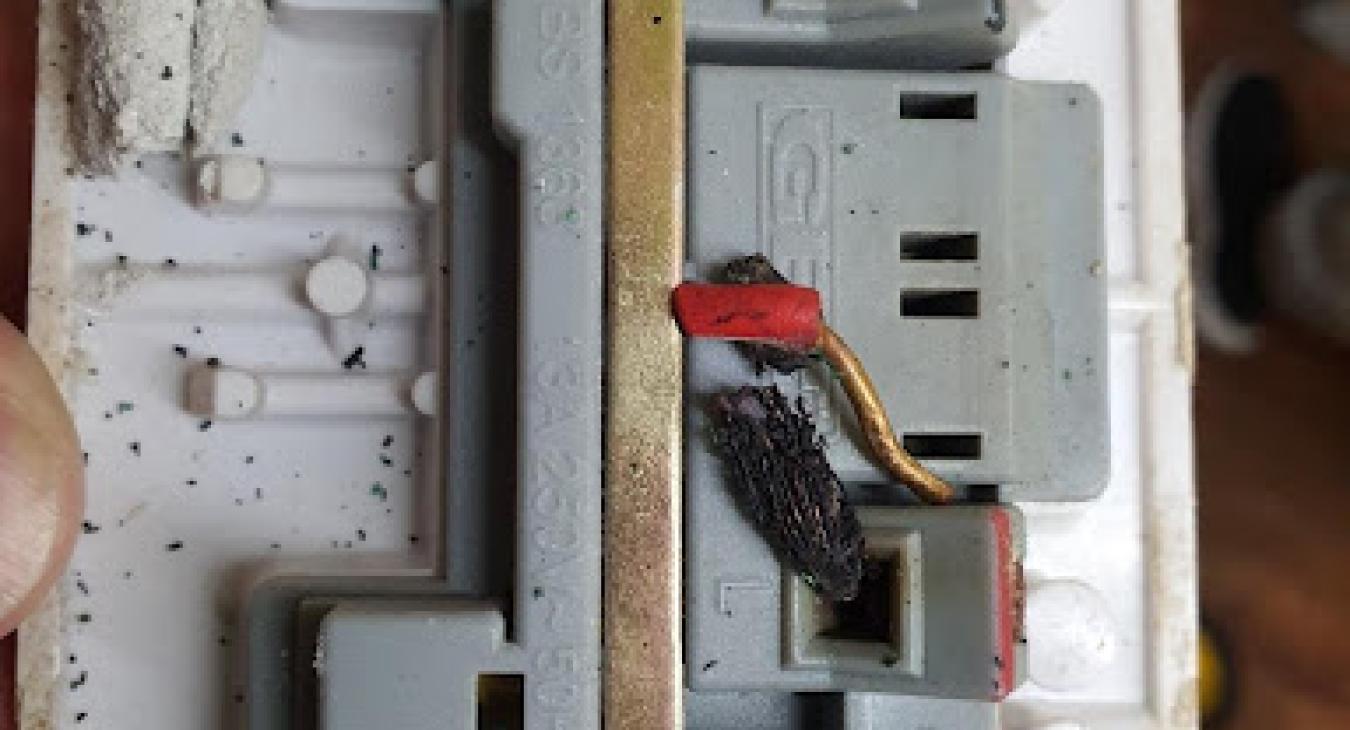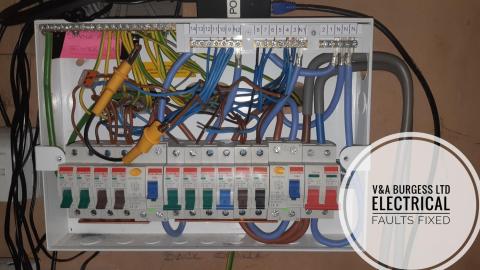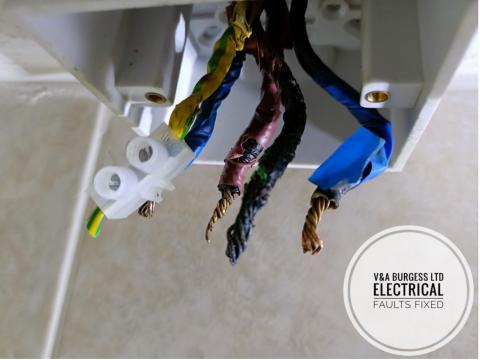
What could be the cause for a CRACKLING PLUG SOCKET?
There are several reasons why a plug socket might begin to make crackling noises. None of these reasons lead to good outcomes and as such a crackling plug socket should be investigated immediately by a qualified electrician. Reasons why a plug socket may make such noises are:
- Loose connections: Over time, with wear and tear, vibrations on the supply and regular insertion and removal of plug tops, electrical sockets can develop loose connections at the rear where the cables terminate into the socket. This can lead to electricity attempting to jump a small gap which will produce the crackling sound. This sound is electrical arcing, an incredibly dangerous situation where electricity crosses air creating a very high temperature situation. Risk of fire is high in these situations.
- Faulty Wiring or Installation: Poor quality workmanship, bad wiring, incorrect terminations, or incorrect cables can lead to situations where crackling occurs. Damaged cables, wires and terminations can lead to arcing and crackling sounds.
- An old or damaged socket: When electrical accessories age, their internal moving components also begin to wear out. When new, these components are designed to slide around inside and make good solid connections with each other in order to allow electrical current to pass safely and with minimal resistance due to tight and firm connections. As these components age, the connections become looser and the gaps and tolerances increase leading to poorer electrical connection, increased heat and possible electrical arcing.
- Overloading a circuit: Using too many power-hungry appliances on one electrical circuit can overload the circuit creating heat and eventual loose wiring causing crackling as electricity arcs.
- Corrosion on electrical components: As metals age, they often corrode creating issue for the passage of electrical current. This makes for a high resistance to current flow which can create the vicious cycle of heat and resistance leading to electrical arcing which is the crackling sound.
How can I prevent plug socket crackling?
There are several ways in which this situation can be prevented or its likelihood minimised.
- Try not to overload electrical circuits in your home: If you can, try and split electrical loads evenly over different circuit such that no one circuit becomes overloaded.
- Inspect your homes electrical accessories often: It is easy to forget all about the electrical system in our homes and allow dangerous situations to go unnoticed. Check plug sockets for signs of damage, wear, cracks and discolouration. Check plug tops for signs of damage and wear also.
- Avoid moisture around electrical sockets: When water enters electrical systems it can cause immediate failure, tripping and risk of arcing. It can leave behind conductive minerals and deposits that permanently affect the insulation of electrical cabling and mean decreased life or permanent failure. Water can also lead to corrosion which in turn affects the electrical resistance and conductivity of connections and cabling. This can lead to high heat and associated problems.
- Replace old electrical accessories: Just because they are still working does not mean they are 100% safe. Electrical accessories are not designed to last forever and as with anything, they will eventually need replacing. If they look very old, switches feel spongy or are just difficult to operate then it is best to consult a professional electrician and have these items replaced.
- Have a thorough electrical inspection carried out by a professional electrician every 10 years as a minimum: Just like a yearly MOT for a vehicle, an electrical installation requires a regular check up to see what is happening beneath the surface. You would not dream of not having brakes checked for years at a time or not looking at the tyres so do not assume your electrical system is just fine because “there have never been any problems”. Past performance is not an indicator of current or future performance. Electrical systems do not generally give warning signs before they fail spectacularly so it’s best to have them checked to prevent serious problems.
- Do not undertake DIY repairs unless you are an Electrician: The IET wiring regulations are 600 pages long and are there for a reason. A DIY enthusiast simply does not have the correct testing equipment, tools or knowledge to carry out electrical work and associated testing and certification safely. It is NOT ENOUGH for electrics to appear to work after DIY, they MUST be tested and installed correctly and in accordance with safety regulations.
Electrical issues such as a CRACKING PLUG SOCKET can be very dangerous and attempting to fix them yourself can lead to further problems, injury, electric shock or death. Call a professional to check things out for you.










